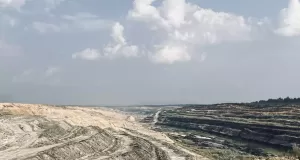As the minister in-charge of coal in 2016, Piyush Goyal had publicly proclaimed that the Modi government was working on a firm plan to eliminate coal imports mainly through substantially enhanced production by Coal India Ltd (CIL).
India has the fourth largest coal reserves in the world at 352 billion tonnes. If the Modi government had seriously implemented the enhanced coal production plan between 2016 and 2020, India wouldn’t be saddled with the coal shortage today to meet the growing demand for power.
The shortage of coal has prompted the Centre to invoke an emergency provision recently to allow private and state power generating companies to use up to 30% imported coal to blend with the domestic supply from CIL to meet the peak power demand in summers. Many state governments have protested, saying the Centre is conveniently passing on the burden of nearly three times higher cost of imported coal. Even the BJP-run government in Uttar Pradesh has said it cannot afford such expensive coal since 90% of its power generated is supplied within the state and its poor people cannot bear big tariff hikes caused by higher fuel cost. Global coal prices have gone through the roof this year and the Modi government has been caught napping.
Former coal secretary Anil Swarup, the main architect of the new coal policy until the end of 2016, said if the government had seriously followed up on its well articulated plan to produce 1 billion tonnes of coal by 2020, both by CIL and the private sector, there would be no coal crisis today. The enhanced production of about 50 million tonnes a year by CIL alone would have sufficed to meet the current need to generate peak thermal power, Swarup said.
When Piyush Goyal made the announcement in September 2016 that India would eliminate coal imports in three to four years, CIL was producing less than 600 million tonnes. Swarup says if the production had grown 8% to 10% annually over the next 3 years, CIL would easily have achieved annual production of 800 million tonnes. Anil Swarup says tragically the production of CIL mostly stagnated between 2017 and 2020. In FY’22, CIL produced only 622 million tonnes of coal.
Given the severe shortage of coal supply from CIL at present, and states being asked to buy imported coal at three times the cost, it is imperative that Prime Minister Narendra Modi conducts a serious inquiry into what went wrong with Goyal’s well-articulated plan to eliminate coal imports by 2020. There must be some accountability in governance, after all.
More shockingly, Anil Swarup says CIL had cash reserves of over Rs 30,000 crore in 2016. This should have been used to substantially enhance production from CIL’s massive reserves. But this was not done and instead the cash reserves of CIL were taken away as dividends by the government, possibly to plug the growing fiscal gap caused by collapsing revenues between 2017 and 2020.
So the money which was to be invested to secure the nation’s energy security, as acutely felt in the post-Ukraine situation, was spent for other purposes. Someone needs to answer for this serious lapse of governance.
As per the 2016 plan, CIL should have been producing about 800 million tonnes of coal and another 200 million tonnes could have come from the private sector which was allotted coal fields via auctions. Even the private sector failed to produce because everyone was happy importing coal as international prices were low for some years because of inadequate demand. Now suddenly prices have shot up over 200% and there is a scramble for coal supplies to generate power.
But instead of having created enough domestic buffers, the government is advising states to import more expensive coal. How does this square with the Modi government’s plan in 2016 to eliminate coal imports totally. Just think about the gap between the policy intent and actual outcome on the ground. While no one is being held accountable for missing higher coal production targets, the hapless consumer is paying through her nose for expensive coal imports.
(M.K. Venu is an active economic and political writer, and a Founding Editor of The Wire. Courtesy: The Wire.)




